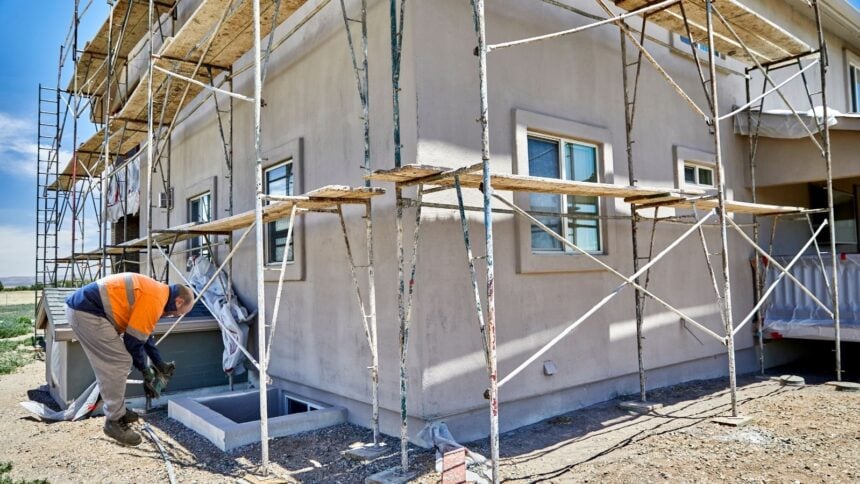Allied Properties REIT’s comeback has been one of the brighter stories among Canadian office landlords this year, helped by cheaper debt and steady distributions.
The units surged through late summer even as Canada’s office recovery remained patchy. This week’s leasing update showed why the rally may be running ahead of fundamentals.
Management said momentum improved in Montréal and Vancouver but conceded the trust will not reach its year end goal of 90% leased and occupied area.
Michael Emory, executive chair, said in a press release, “we won’t achieve targeted occupied and leased area of 90% by year end.”
At June 30, Allied’s leased area stood at 87.2% and portfolio occupancy at 86.8%, with average net rent of $25.32 per occupied square foot and a weighted average lease term of 5.6 years.
The trust maintained its monthly distribution at $0.15 per unit, or $1.80 annualized. Those markers point to stabilization, not a full rebound.
Allied said its 400 West Georgia tower in Vancouver is now 96% leased after a 49,105 square-foot deal with a global educational institution, and that Netflix expanded at M4, taking the building to 90% leased.
By contrast, the trust’s own update noted slower than expected progress this year in the Heritage segment and in Toronto.
CBRE reported a sharp drop in downtown Class A vacancy nationally in the third quarter, led by Toronto’s rebound, while Montréal and Vancouver posted negative net absorption as larger blocks came back to market.
Allied completed a $450 million green bond at 4.667% due 2031, with proceeds earmarked first to repay a construction loan and revolving facility before being allocated under its green financing framework.
It raised $400 million in unsecured debentures, including a CORRA linked tranche that Allied swapped to a fixed effective rate of 4.258%, to prepay a 2025 term loan. These moves lower refinancing risk and buy time for leasing to catch up.
CBRE’s latest figures show Canada’s office pipeline at a 20 year low and sublease space falling for nine straight quarters, both supportive trends.
Yet the same report shows uneven demand across cities and asset classes, reflecting a still fragmented return to office among tech and creative tenants that anchor Allied’s urban portfolio.
The TSX stalls near a record has supported risk appetite for rate sensitive real estate, and a credible 2 inflation goal at the Bank of Canada limits worst case rate fears.
But with dispersion still wide inside the office market, stock gains may need proof of sustained absorption and rent growth, not just cheaper debt.
Allied’s premium assets are doing the heavy lifting while the rest of the portfolio waits for a fuller return to office. Screening top TSX stocks, that means the trust’s yield and balance sheet progress are strengths, but the leasing math remains the core thesis to monitor into year end.


















